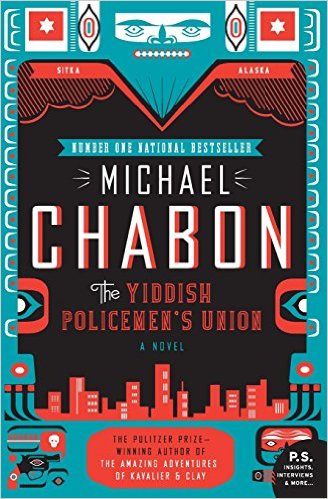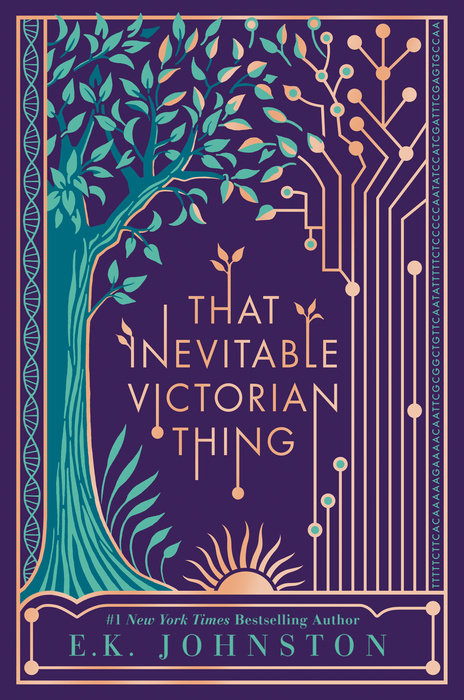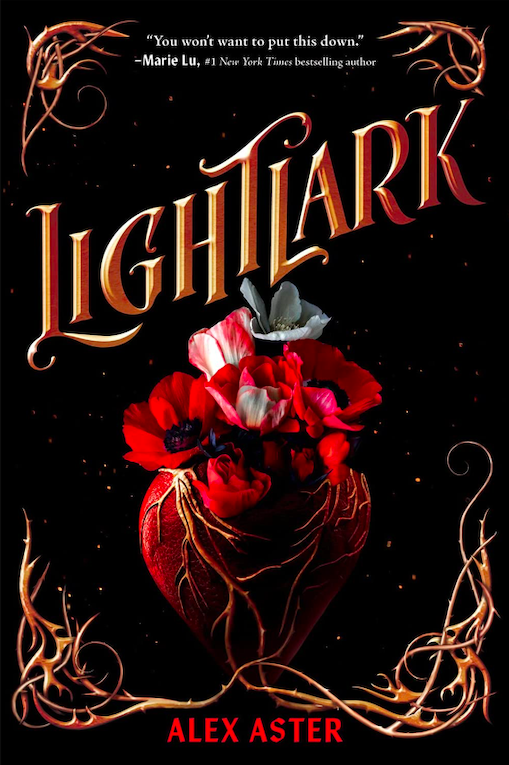[button color=”black” size=”big” link=”http://affiliates.abebooks.com/c/99844/77798/2029?u=http%3A%2F%2Fwww.abebooks.com%2Fservlet%2FSearchResults%3Fisbn%3D9780007149834″ target=”blank” ]Purchase here[/button]
The Yiddish Policemen’s Union
by Michael Chabon
This novel by an already Pulitzer- and O. Henry Prize-winning author won numerous honors, including a Hugo Award, a Nebula Award, and a Sidewise Award for Alternate History. It pretty much racked up all the sci-fi and fantasy-related “best novel” awards in 2007-08. And yet it doesn’t have any wizards, spaceships, faeries, dragons, unicorns, or mad scientists. It takes place in the final months of the 20th century in a world full of familiar things like cell phones, cigarettes, cars, airplanes, and the United States of America. In fact, the story is more than anything else a hardboiled murder mystery.
What makes it sci-fi/fantasy isn’t magic or technology or beings from outer space, but a quirk of history. In 1940, in the real world, the U.S. Congress considered opening parts of Alaska to Jewish refugees fleeing Nazi persecution. The proposal never came to a vote, thanks in part to an Alaskan politician named Anthony Dimond. Chabon’s alternate history begins when Dimond dies in a car accident, the plan moves forward, and four million European Jews are saved from the Holocaust. They end up crowded into an autonomous federal district in southeastern Alaska, a place called Sitka, which actually exists but on a much smaller scale. Hemmed in by border hostilities with the Tlingit Indians and slated to revert to Alaskan control at the end of the century, the novel’s Sitka is a melting pot of secular Jews and “black hats,” leftist utopians and prosperous gangsters, musicians, chess-players, small-time crooks, cops, junkies, and all the other little people, united by the Yiddish language and a growing despair about what is to become of them.
So, yes, it’s a fantastically different world: a world with no U.S.S.R., no Communist China, and no State of Israel; a world where Marilyn Monroe was the first lady of the United States; a world where Yiddish, not Hebrew, became the lingua franca of the “Frozen Chosen,” a crowded, diverse, and above all temporary oasis for a people without a country of their own. Personifying these people in all their conflict, desperation, and yearning hope is the novel’s soul and voice, homicide detective Meyer Landsman.
Landsman is middle-aged, divorced, alcoholic, haunted by the suicide of his chess-prodigy father, the decision to terminate his ex-wife’s one and only pregnancy, and the airplane-crash death of his virago sister. His only friend, who also happens to be his half-Tlingit cousin and buddy-cop partner, is nearing the end of his patience. Landsman lives in a fleabag hotel, where one of the other tenants turns up dead in the first paragraph of the novel. The victim is a chess-playing heroin addict living under an assumed name. No one seems to care if this crime gets solved, especially with Reversion looming ever larger. But for some reason, Landsman can’t seem to let it go, even if his sleuthing puts him at risk of losing his badge, getting locked up, or even getting killed.
The dead man’s background has something to do with a hasidic sect’s expectation of messiah, something to do with a secret compound where who-knows-what is going on, and again something to do with the death of Landsman’s sister. Dangerous hoodlums, corrupt members of the Tlingit tribal council, and agents of the American government are caught up together in a plan that grows weirder and more dastardly the more you find out about it. As Meyer, his partner Berko and his ex-wife Bina probe more and more deeply and face mounting danger with every clue, the question that continues to elude them is: Who killed the guy in room 208?
This is an exquisite novel. Its language is disciplined, laconic, all that a fan of hardboiled fiction can ask for, with the addition of poetic surprises and an intoxicating Yiddish lilt. Author Chabon adds some brilliantly invented Sitka slang, such as “sholem” (a multilingual pun for “gun”) and my favorite, “noz” (meaning cop). It takes a small Alaskan town of 8,000 souls and turns it into a roaring, complex, doomed city of 3 million. It revels in the diversity of Jewish culture and reveals the contradictory impulses of the Jewish soul. It has stood some heat for its politically incorrect depiction of Jews as a people divided by conflict and afflicted by every weakness common to mankind. And it earned its bevy of awards and short-listed nominations by combining a fast-reading, page-turning novel of mystery, romance, action, and suspense with a literary feast that makes you want to savor it slowly.
Such a feast of gritty, hard-hitting psychological insights, thought-provoking ideas, heart-squeezing emotions, and ceaselessly flowing lyricism and wit I have not seen since… well, the last time I read a book by Michael Chabon. He claims that the style of this book was atypical of his work. All the more reason to applaud his discipline and inventiveness in creating such a vibrant world of people, places, culture, and language. And though it may not be all that you expect of a sci-fi/fantasy novel, I think it may teach you to expect more.



